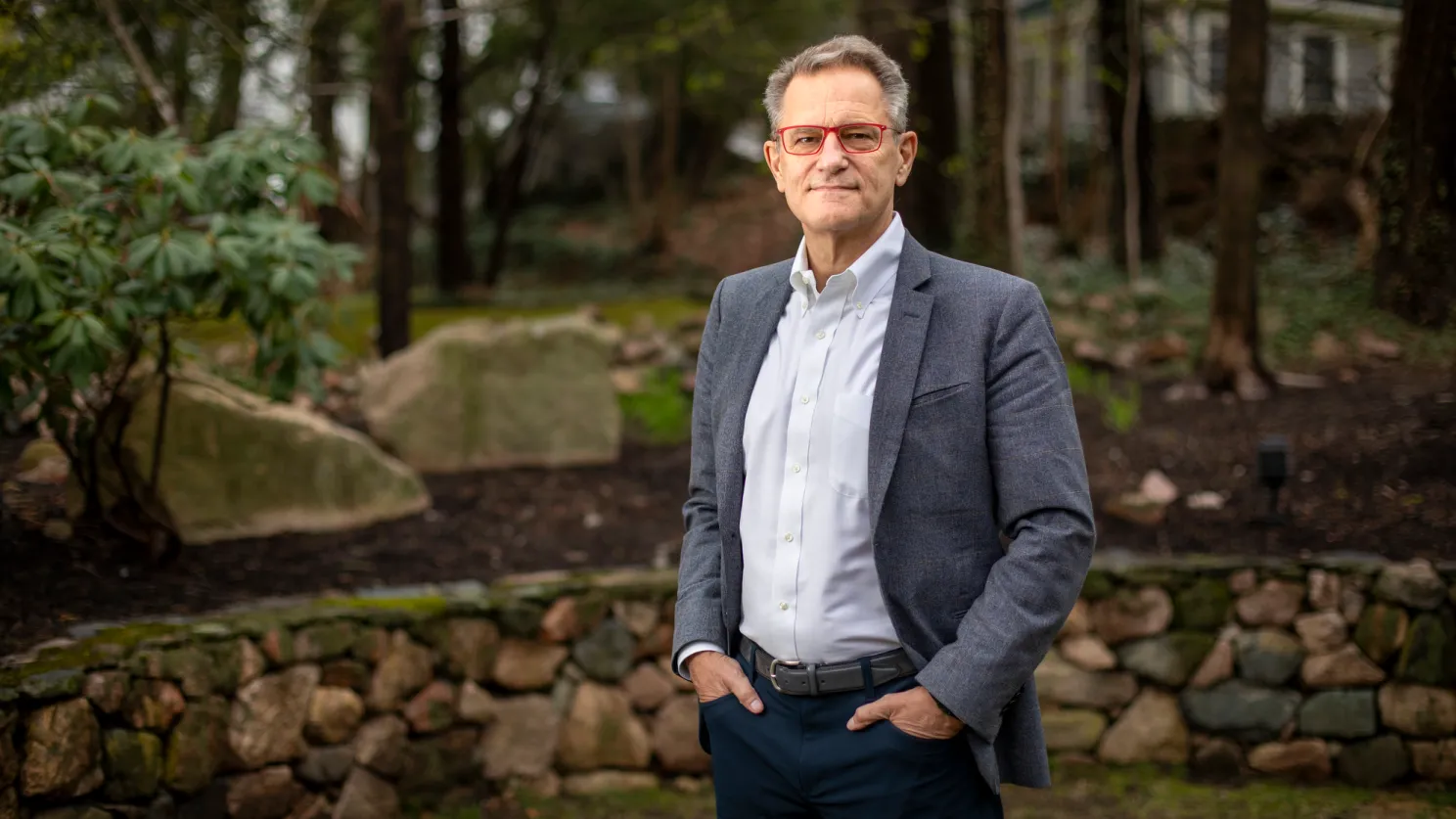
Riskier to know — or not to know — you’re predisposed to a disease?
‘DNA isn’t a crystal ball for every kind of illness’ but potential benefits outweigh fears, says geneticist, Robert C. Green, MD, MPH.

‘DNA isn’t a crystal ball for every kind of illness’ but potential benefits outweigh fears, says geneticist, Robert C. Green, MD, MPH.

Screening can now determine their risk for an ever-growing list of conditions — including ones we can’t do much about.

What if your DNA could help you avoid serious illnesses before they even start? In this episode of ‘Genetics for Healthcare,’ Rome Madison and Dr. Robert Green, medical geneticist at Harvard Medical School, discuss how cutting-edge genomics is transforming healthcare—from reactive to proactive.
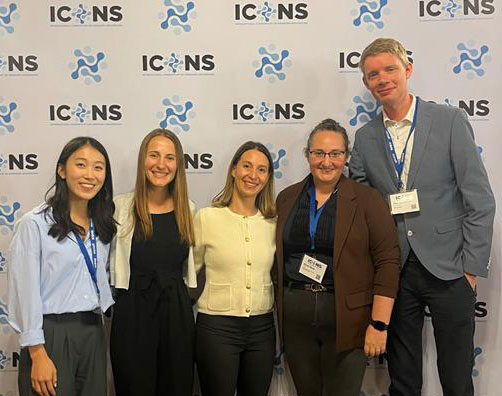
More than a decade ago, researchers launched the BabySeq Project, a pilot program to return newborn genomic sequencing results to parents and measure the effects on newborn care. Today, over 30 international initiatives are exploring the expansion of newborn screening using genomic sequencing (NBSeq), but a new study by researchers from Mass General Brigham highlights … Continued
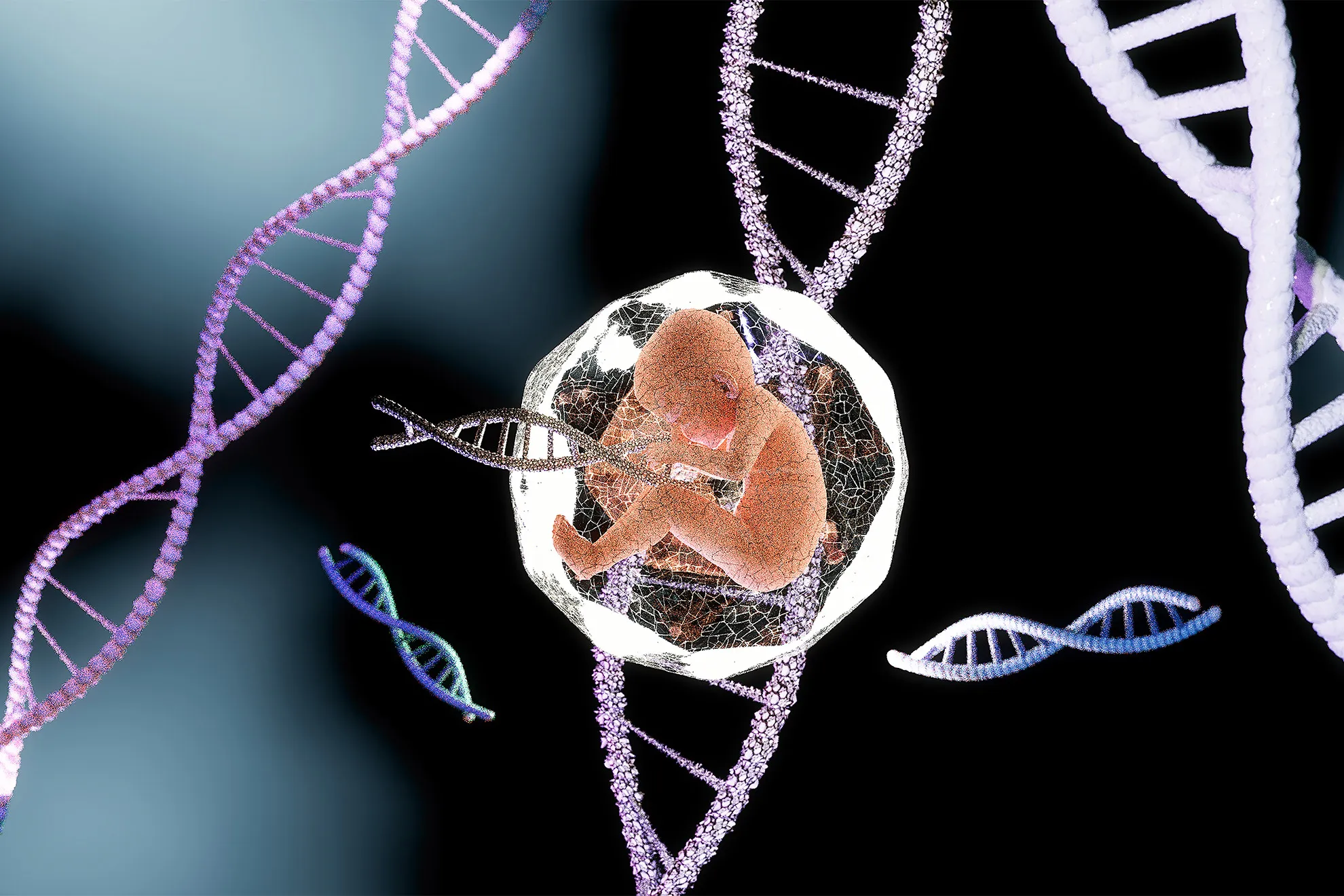
“We saw a critical gap in prenatal care and an opportunity to define the genetic disorders that are treatable during this time,” said senior author Nina Gold, director of Prenatal Medical Genetics at Massachusetts General Hospital and an assistant professor of pediatrics at Harvard Medical School. “These conditions are actionable — meaning that, empowered with … Continued

Researchers from Mass General Brigham, Harvard Medical School and Duke University School of Medicine have identified nearly 300 genetic disorders that can be treated before or immediately after a baby is born. This “treatable fetal findings list” could improve the diagnosis of genetic conditions in pregnancy and enhance the treatment options available for fetuses who have … Continued
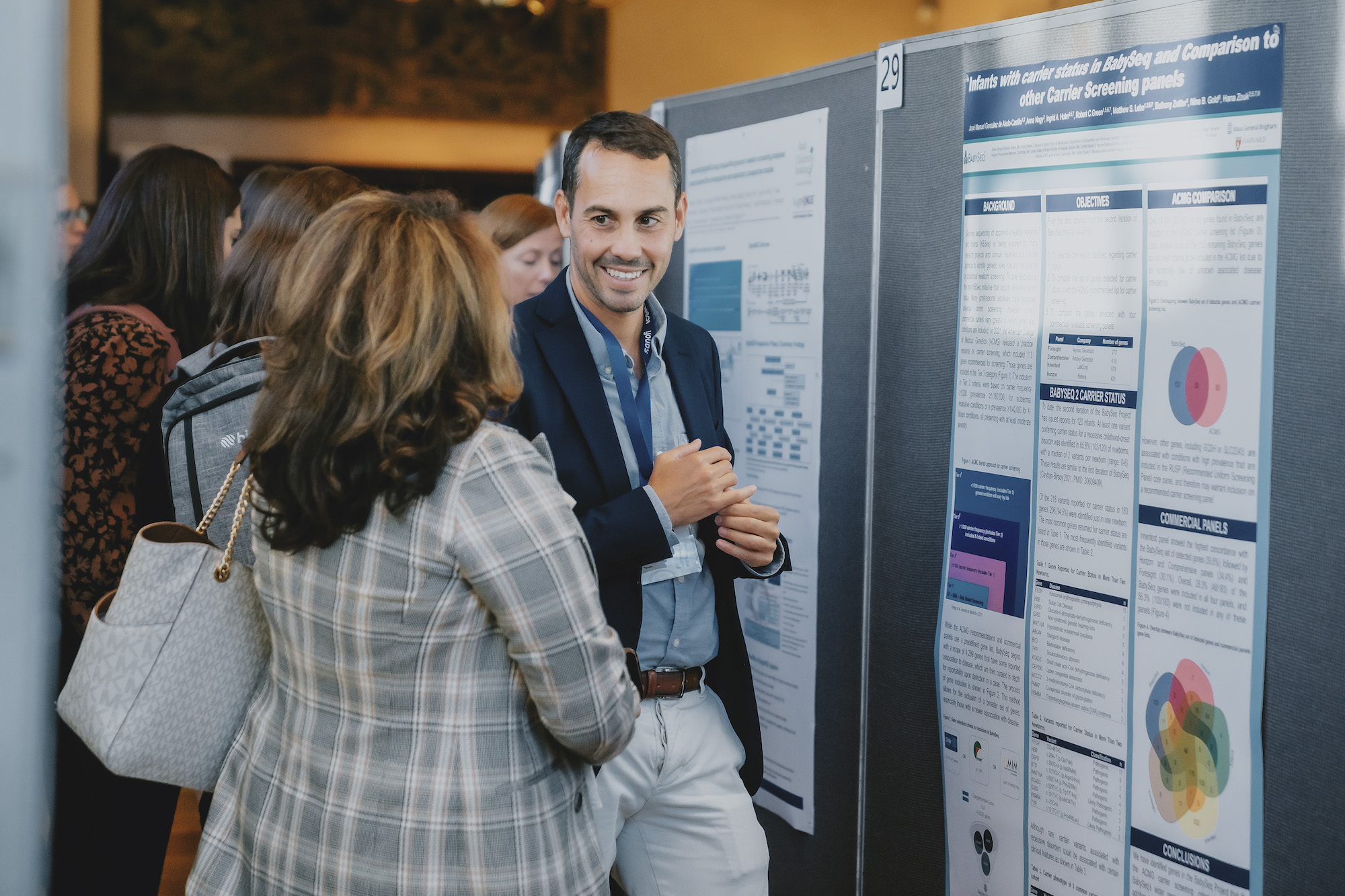
José Manuel González de Aledo Castillo, PhD reflects on his experience rotating with the Genomes2People research program and working on the BabySeq project for a year as part of the IFCC Professional Exchange Program (PSEP). During his rotation, he supported recruitment, genomic analysis, and return of results for the BabySeq project. He also presented results … Continued
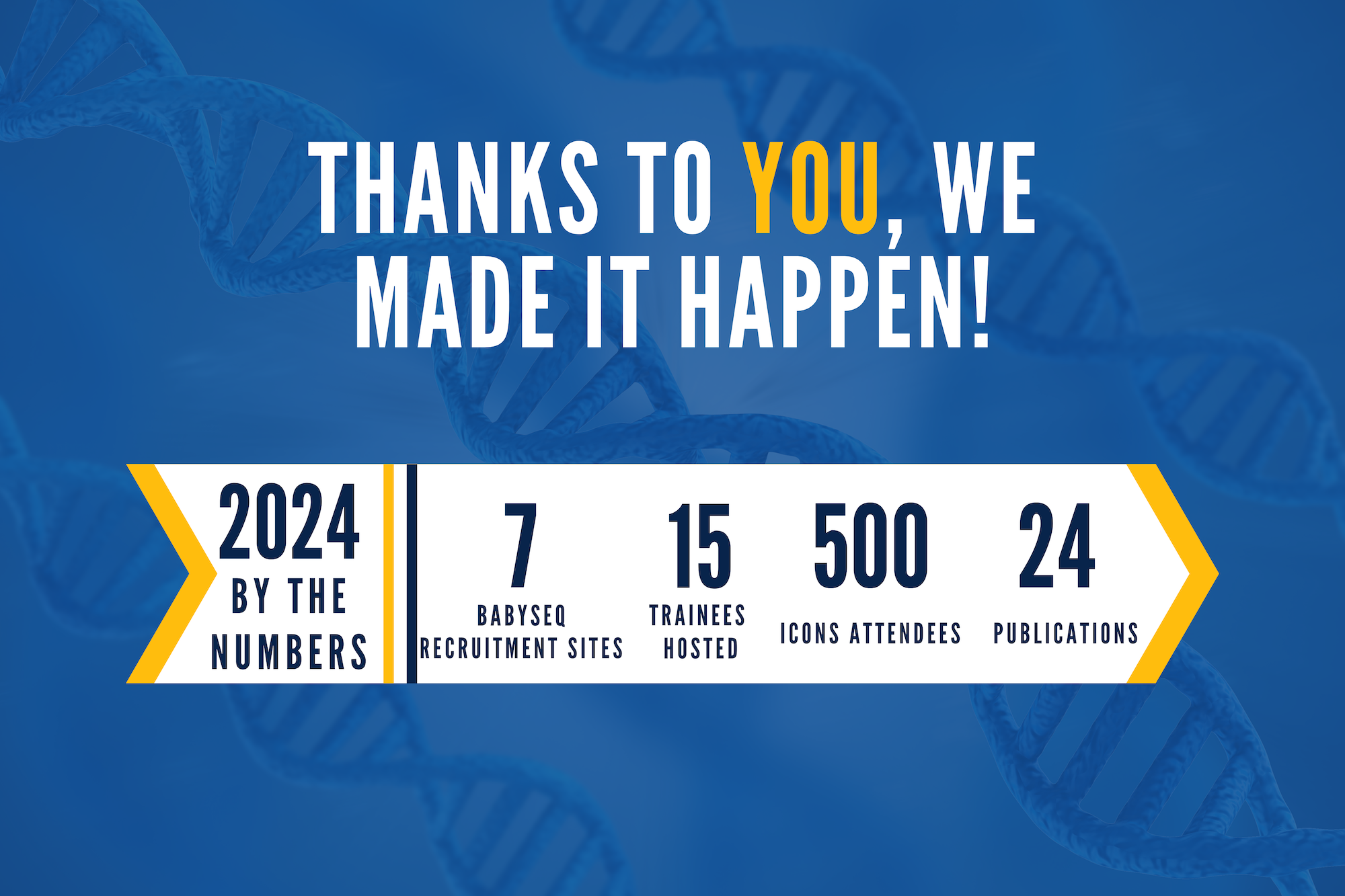
Thanks to you, we made it happen! Extending a heartfelt thank you for your support of the Genomes2People Research Program in 2024. This newsletter highlights milestones in 2024, including expanding the BabySeq project to 7 sites nationwide, hosting 15 research trainees, contributing to a successful International Conference on Newborn Sequencing, and completing the first ever … Continued
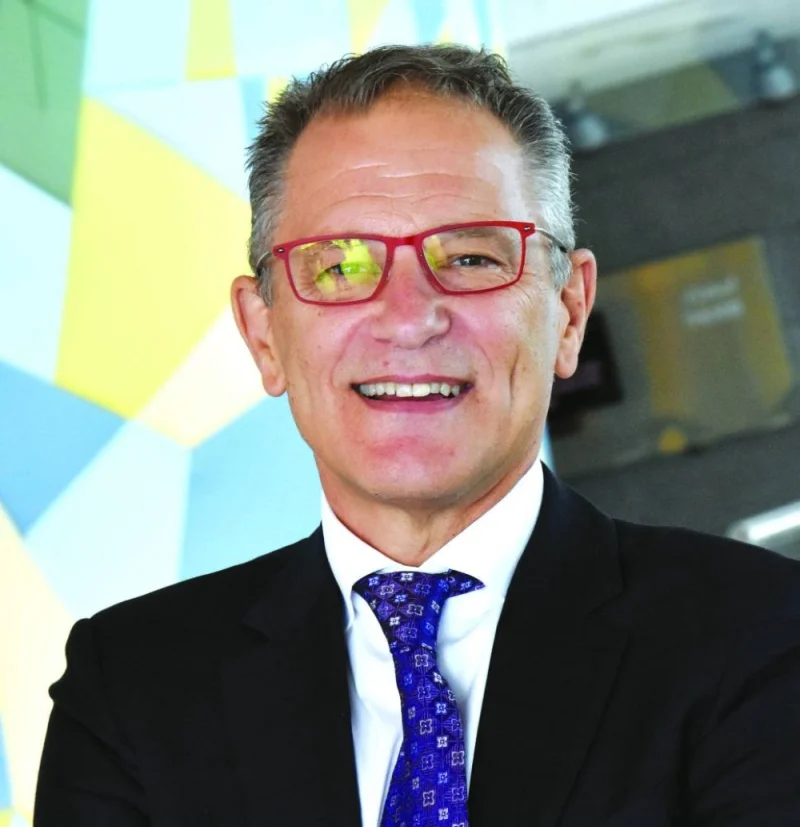
Robert Green, MD, MPH was interviewed by Gulf Times at the recent Precision Medicine and the Future of Genomics (PMFG) Summit in Doha, Qatar. Dr. Green discusses findings from the BabySeq Project and the potential for Qatar to be leader in genomics and precision medicine.
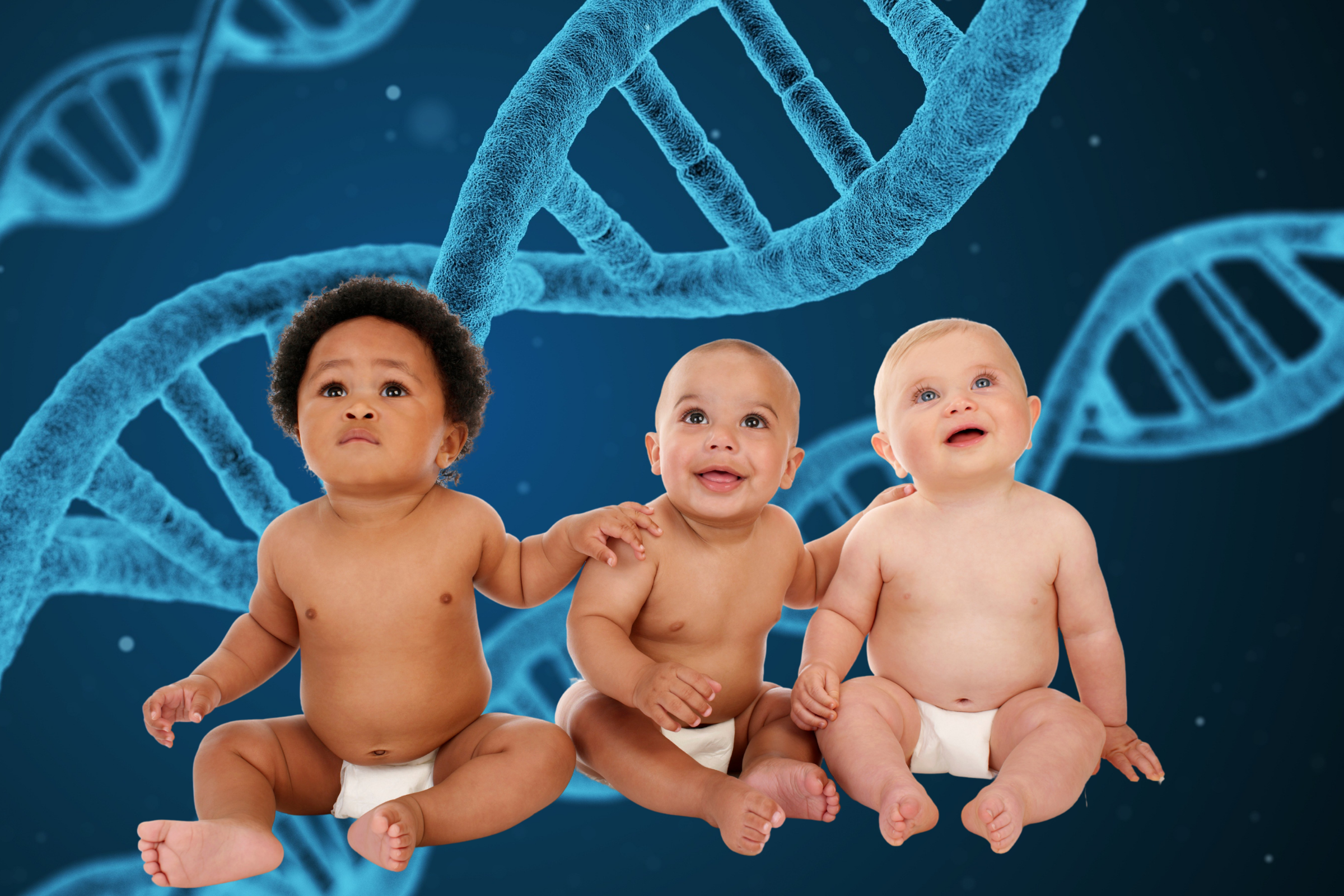
“Similar rates of genetic variants have been reported across demographic groups participating in the BabySeq1 and BabySeq2 projects, according to a new analysis presented at the National Society of Genetic Counselors annual meeting here last week.”
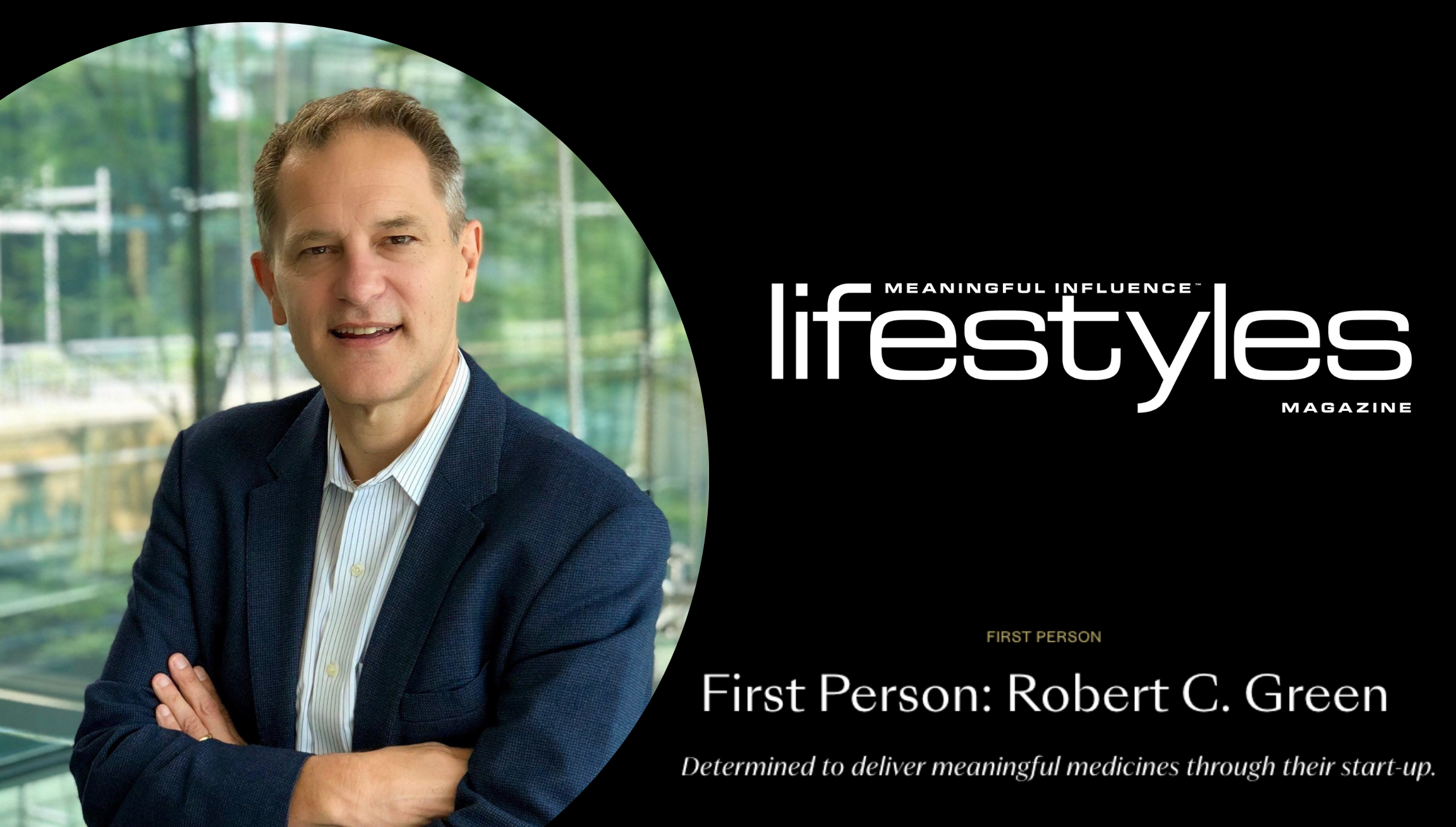
Robert C. Green, MD, MPH writes a piece for Lifestyles Magazine on the promise of preventive genomics. Dr. Green draws on his experience researching preventive genomics over the past 20 years and his experience launching Nurture Genomics, a start-up delivering genome sequencing to newborns and children.

In this recent editorial, Nature Medicine argues that every baby deserves access to genetic screening. There are currently several international studies underway—including the Generation Study, Guardian Study, and the BabySeq Project—that are evaluating the utility and challenges of implementing routine expanded newborn genetic screening. Nature Medicine concludes that while newborn sequencing has great potential to … Continued
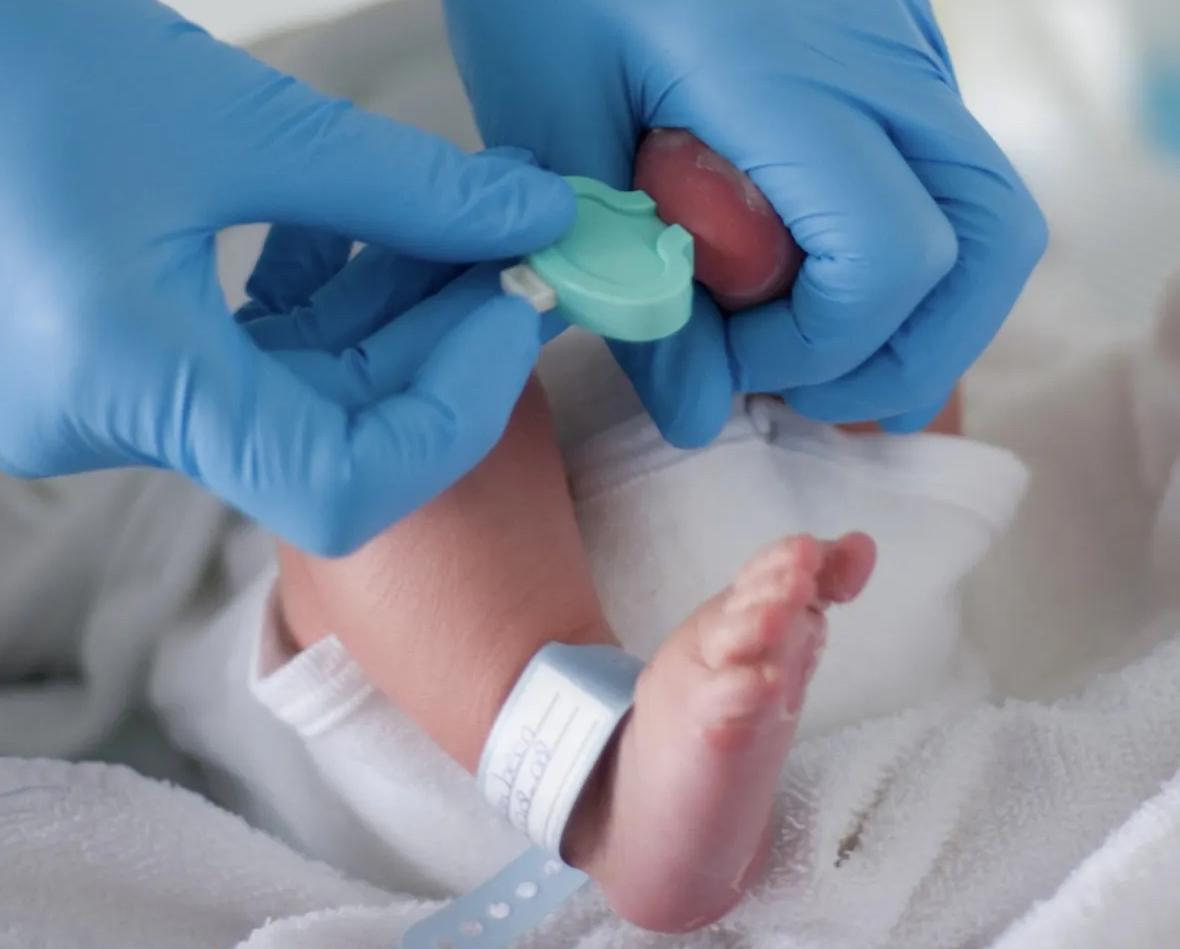
Visiting researcher, José Manuel González de Aledo Castillo, speaks on what newborn sequencing programs can learn from conventional newborn screening in his recent blog entitled “The Second Revolution of Newborn Screening.” He advocates for a future in which newborn sequencing and traditional newborn screening can work together in a complementary manner to ultimately reduce costs … Continued
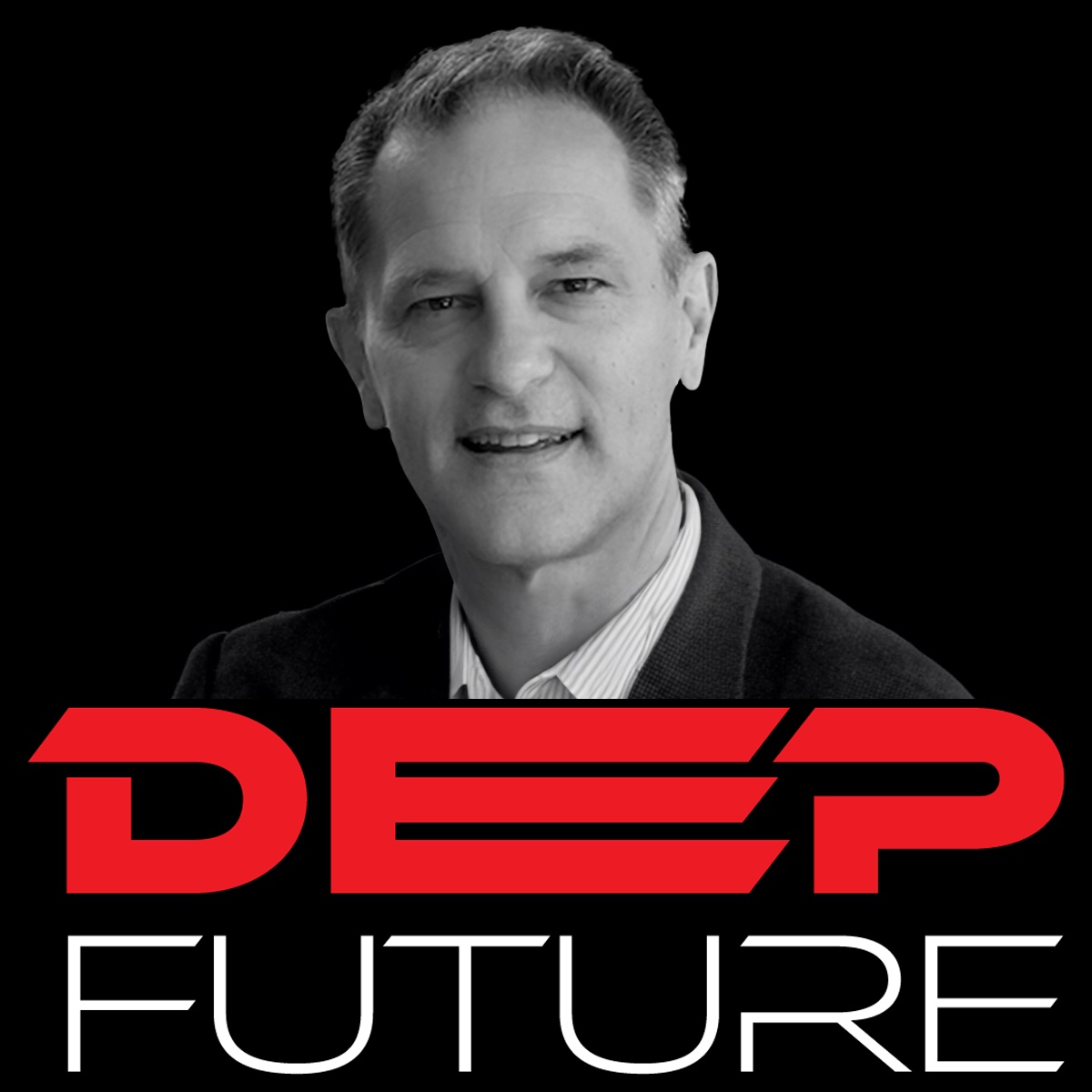
Robert Green joins Pablos Holman on the Deep Future podcast to discuss the promise of genome sequencing in children. He draws upon his work from the BabySeq Project and from his new start-up company, Nurture Genomics, where he uses genomic screening in infants to detect and mitigate actionable genetic conditions.
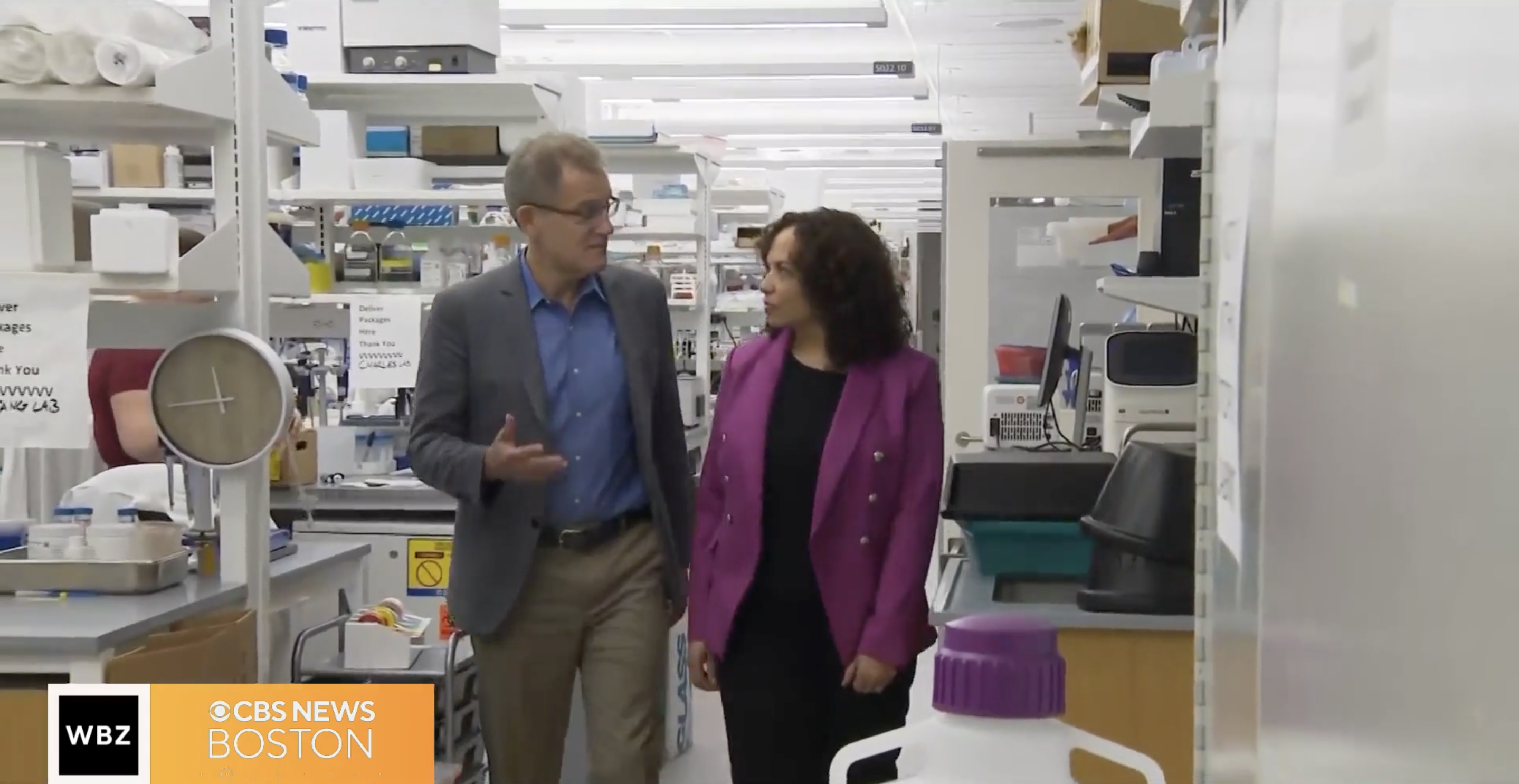
This Rare Disease Day, CBS News reports on the BabySeq Project in an interview with Dr. Robert Green and family participants from the project. Dr. Green shares how he hopes the attention will lead to more screening for genetic conditions in newborn babies.
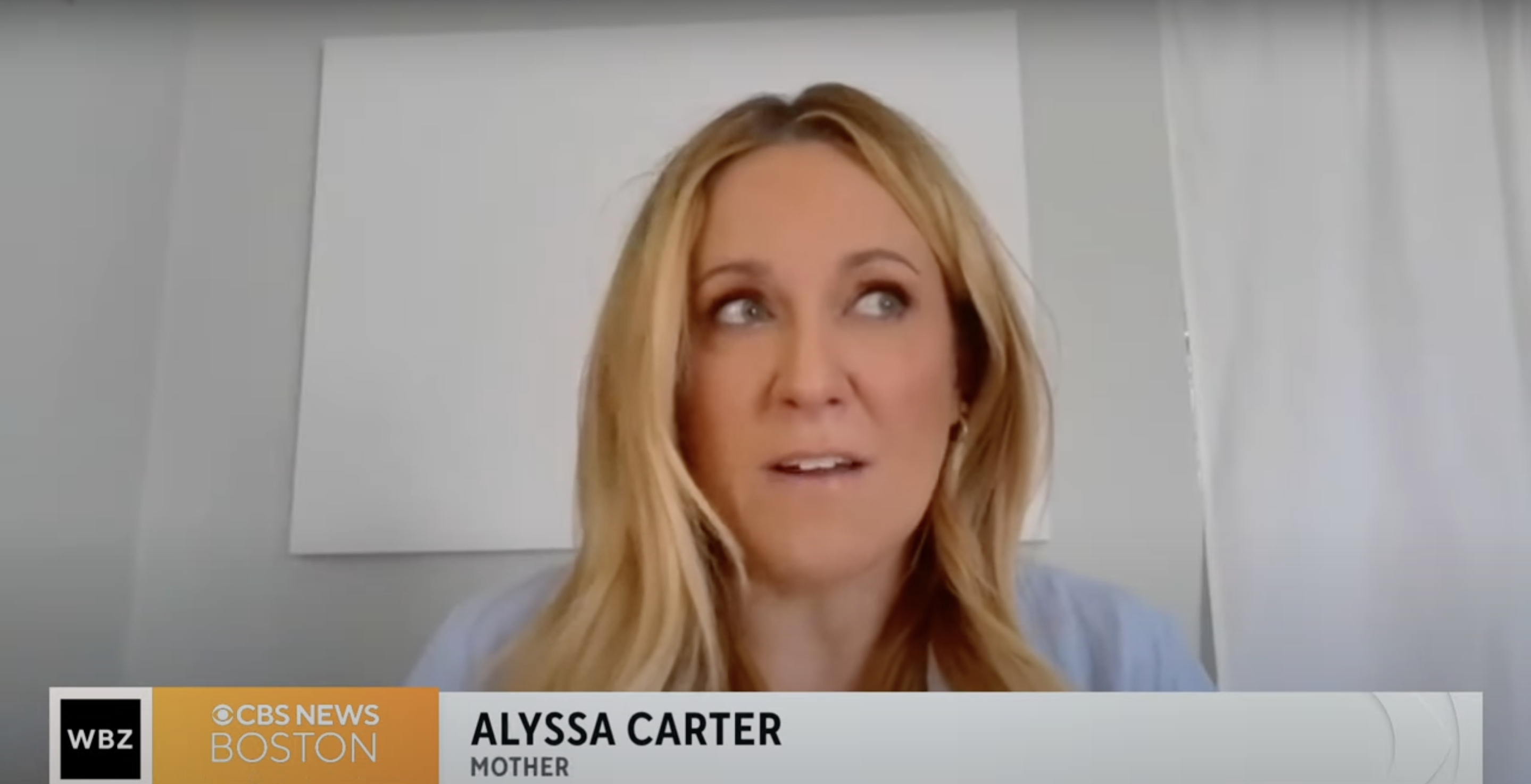
In this short video from CBS Boston, Dr. Robert Green shares findings from the BabySeq Project and makes the case for more screening of genetic diseases in newborns. Families who participated the BabySeq Project also share their stories.
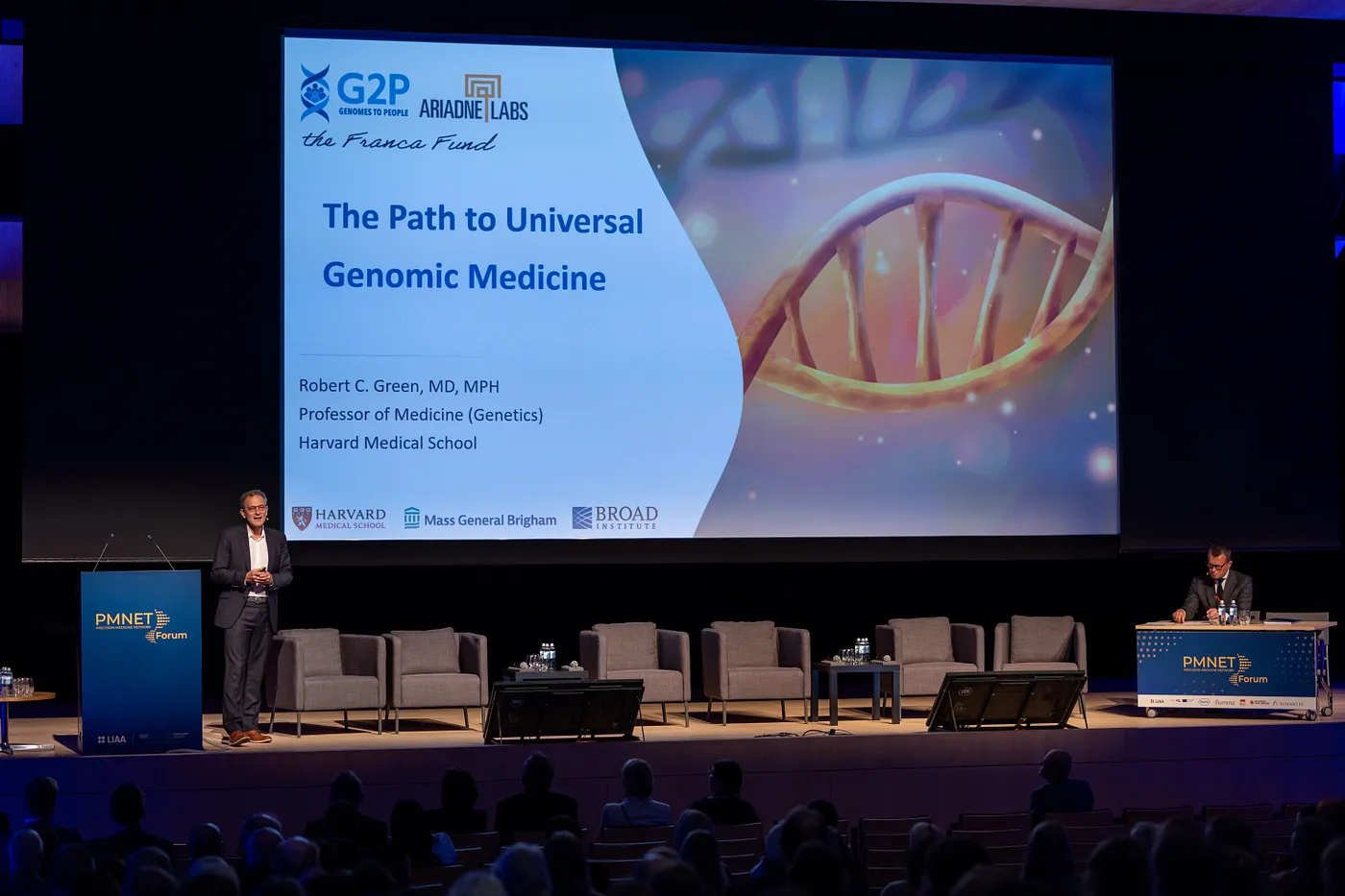
In this blog post, Dr. Robert Green poses the question: “What’s holding us back from doing more with preventive genomics in medicine?” Drawing on his recent keynote talk at the Precision Medicine Network (PMNET) Forum in Riga, Latvia, Dr. Green explores near-term applications of precision medicine using genetic testing such as: newborn and childhood sequencing, … Continued
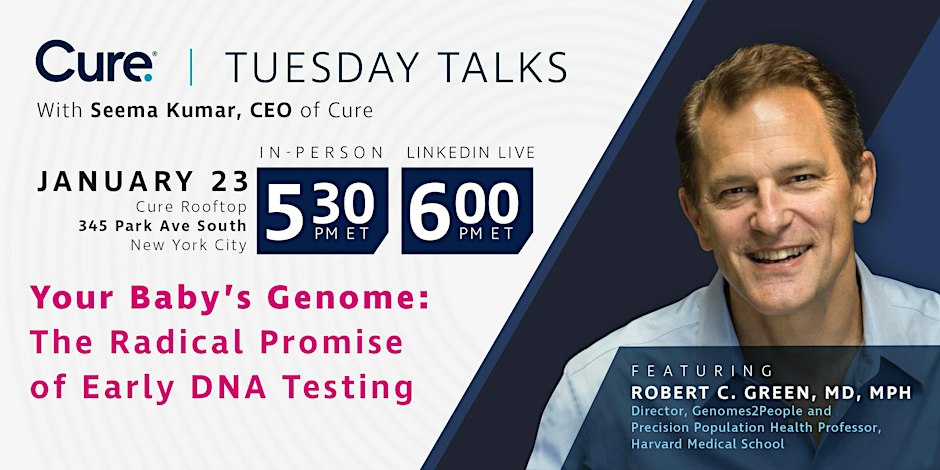
Robert Green is interviewed by Seema Kumar, Cure CEO about The Radical Promise of Early DNA Testing for human health and longevity. He shares results from the BabySeq Project and progress on building the new start-up company, Nurture Genomics.
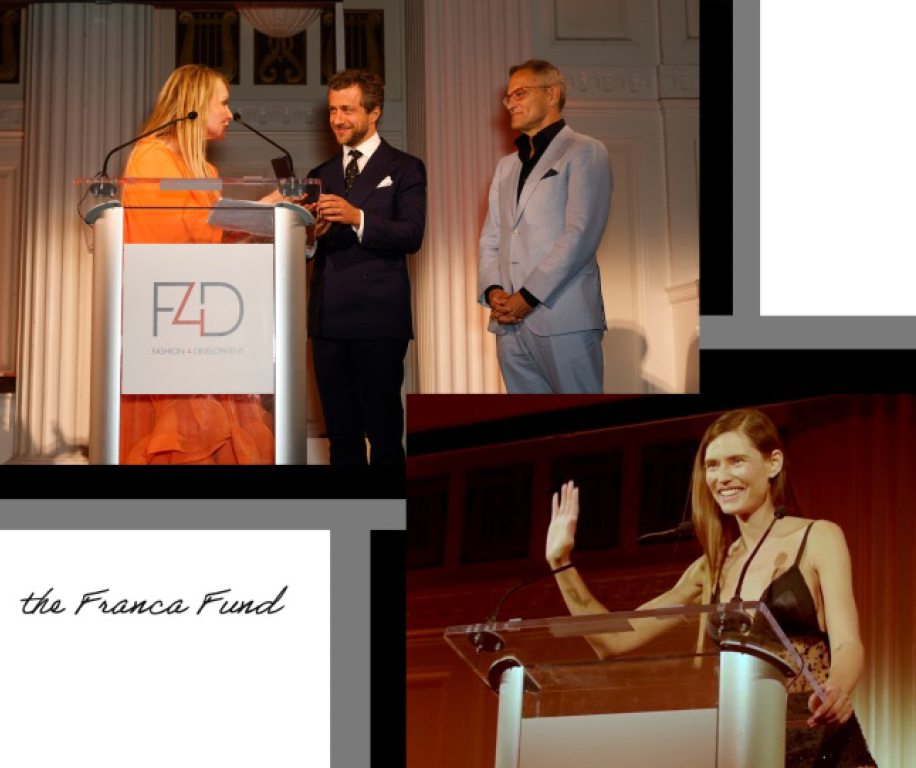
G2P’s final newsletter of 2023 celebrates the five year anniversary of The Franca Sozzani Fund for Preventive Genomics. Other highlights include the second annual meeting of the International Consortium on Newborn Sequencing (ICoNS) in London and the 2023 Advisory Board members of the year, Mike and Ann Marie Einziger. We also join Genomes2Veterans in celebrating … Continued
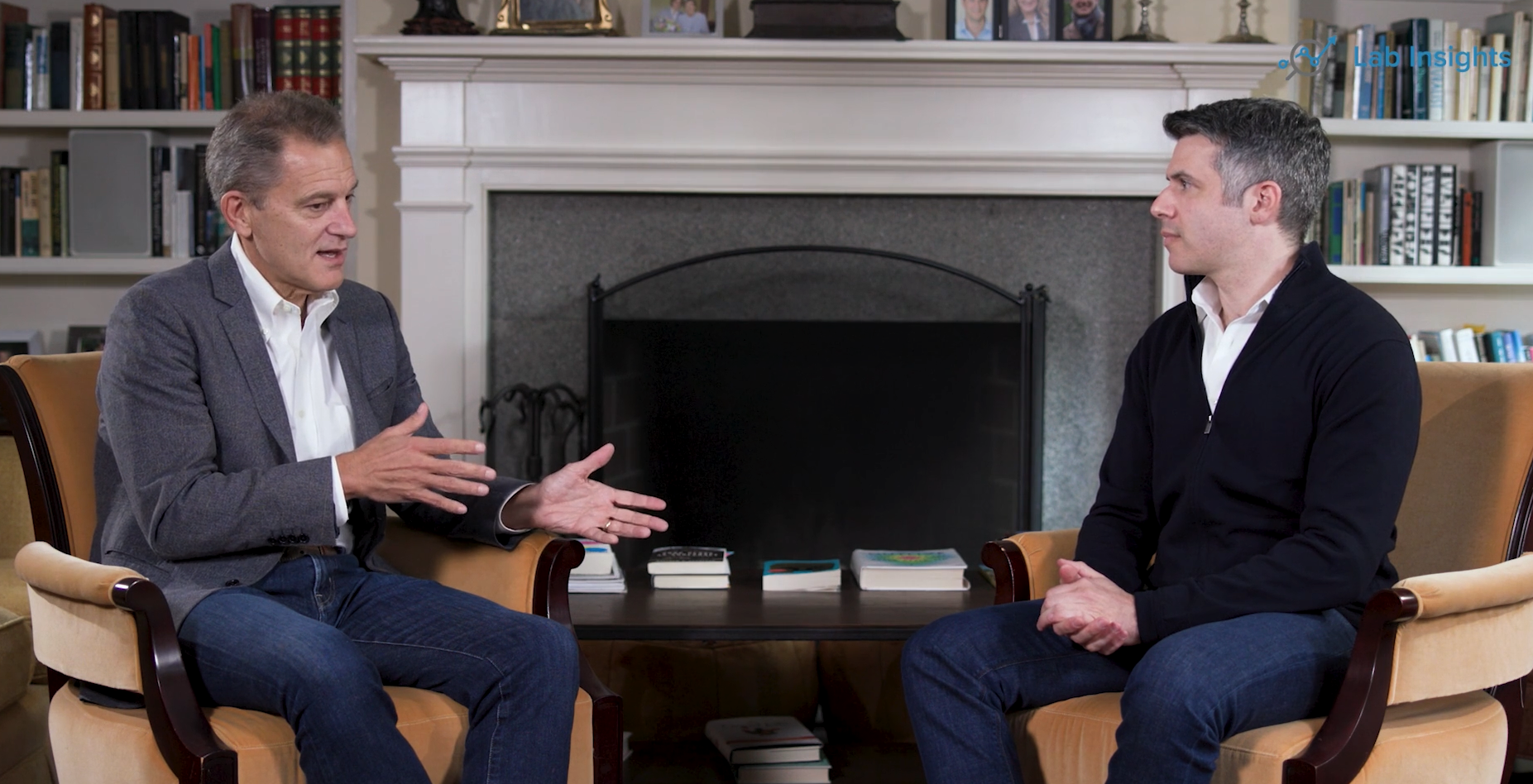
“In this Q&A with Will Greene, Healthcare Engagement Lead at Roche Diagnostics Asia Pacific, Dr Green talks about his pioneering work in newborn sequencing, including via the BabySeq project and the International Consortium on Newborn Sequencing (ICoNS), as well as his broader efforts to make genomic information actionable and accessible for people everywhere.”

“Robert Green, a professor at Harvard Medical School and co-PI of the BabySeq2 study, said the project picked the Broad lab as its sequencing provider, while the Mass General Brigham Laboratory for Molecular Medicine (LMM) is doing the genome interpretation. The project, which is currently recruiting, intends to enroll between 500 and 2,000 families over … Continued
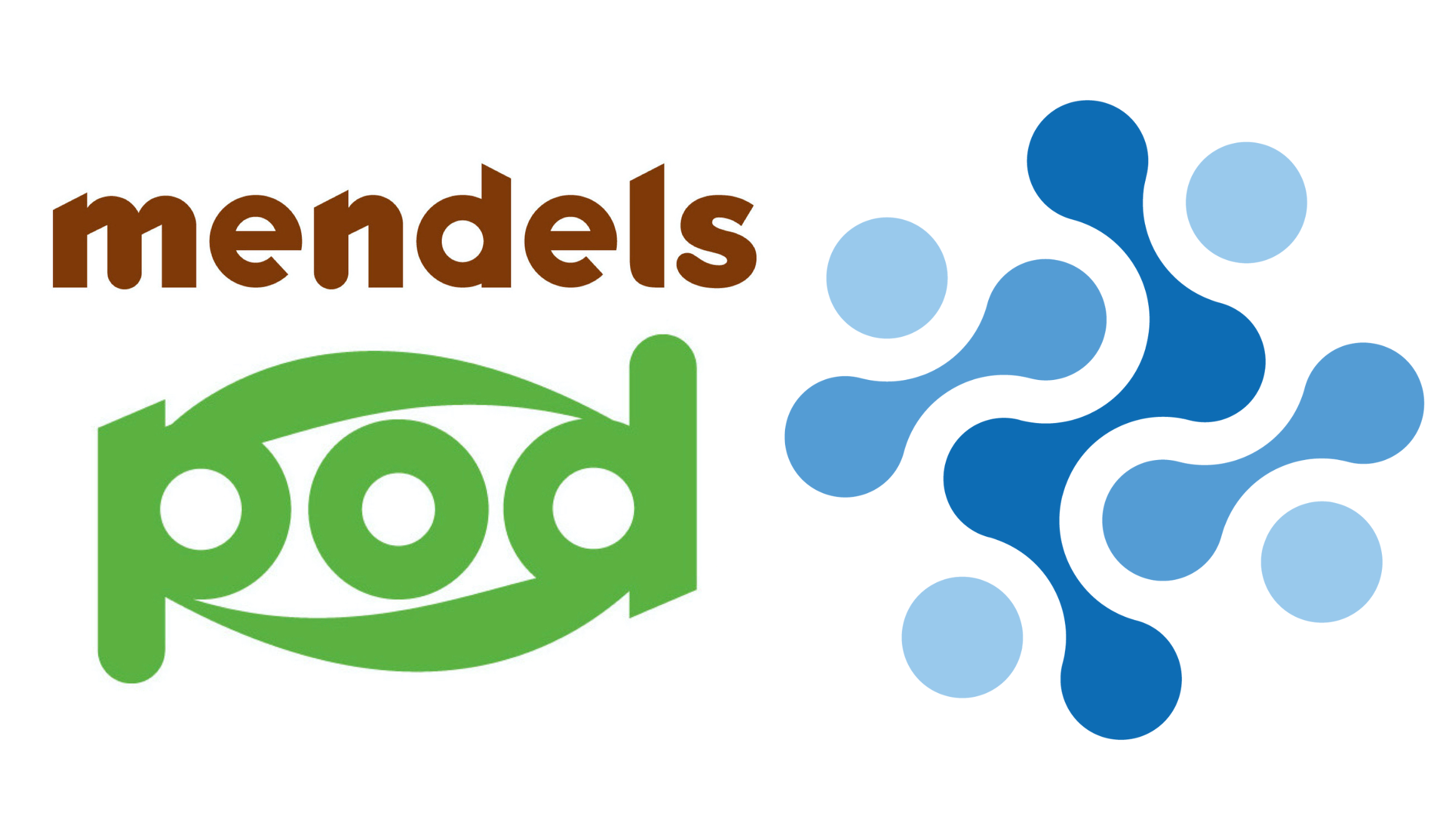
Julia Karow, Managing Editor at GenomeWeb; Robert Green, Director of Genomes2People and Co-Chair of the International Consortium on Newborn Sequencing (ICoNS); Wendy Chung, Chair of Pediatrics in Medicine at Boston Children’s Hospital and leader of the Guardian Study; and James Buchanan, Senior Lecturer in Health Economics at Queen Mary University in London, discuss takeaways and … Continued
Earlier this month, leading researchers and experts in genomics and newborn sequencing representing the U.S., the U.K., Europe, Australia, and the Middle East came together in London at the Royal Institution for the second annual International Conference on Newborn Sequencing co-hosted with Genomics England to present updates regarding their own research and share future plans.
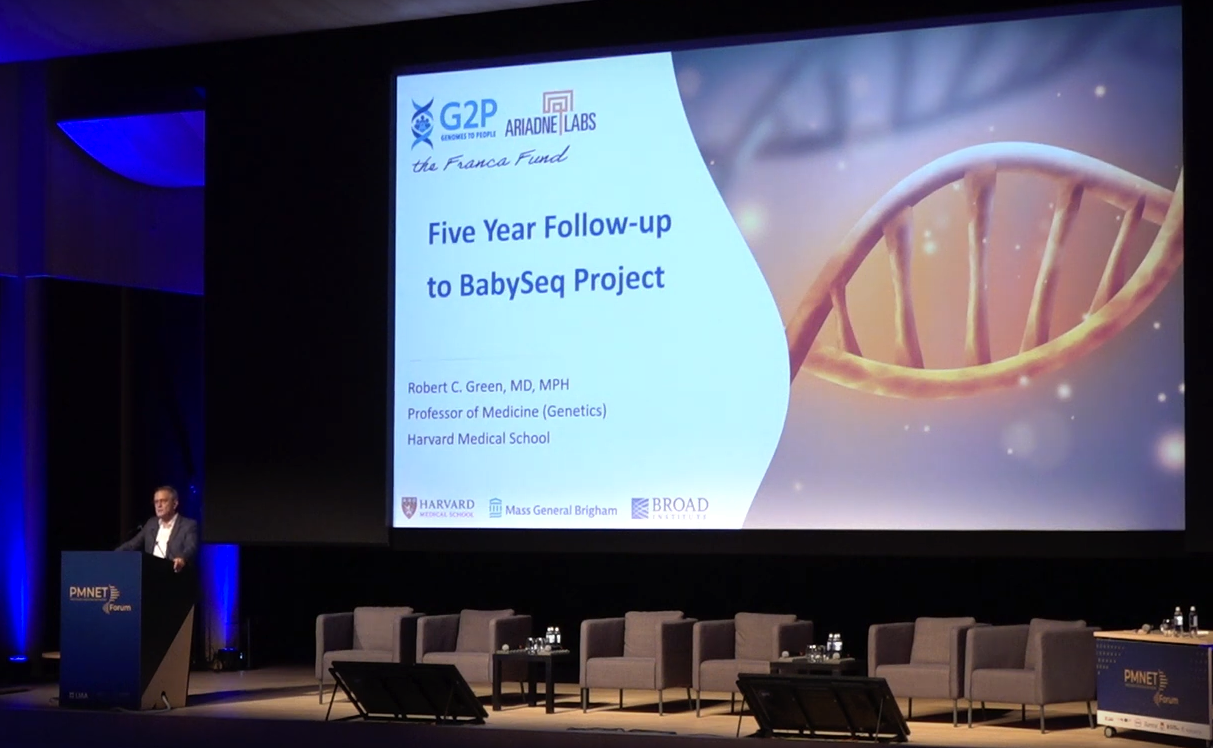
The 2023 Precision Medicine Network (PMNET) Forum was held on October 12-13, 2023 in Riga, Latvia. PMNET’s mission is to improve patient care and outcomes by promoting development and adoption of Precision Medicine. Robert Green gave a talk about the five year follow-up of the BabySeq Project.

Last week a dozen newborn sequencing research programs from the US, the UK, Europe, Australia, and the Middle East shared progress updates and future plans at the second annual International Conference on Newborn Sequencing (ICoNS) in London. Robert Green and Ingrid Holm, co-PIs of the BabySeq2 study, shared enrollment updates from the second iteration of … Continued
At the 2023 International Conference on Newborn Sequencing (ICoNS), Drs. Robert Green and Ingrid Holm, Co-PIs of BabySeq2, share updates on the BabySeq Project.
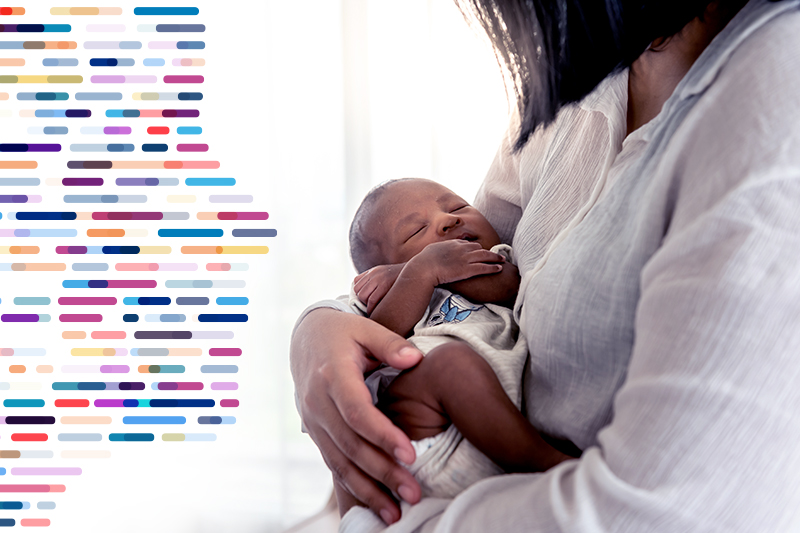
Read about how the second iteration of The BabySeq Project, BabySeq 2.0, is striving to make genome sequencing accessible to a diverse population of newborns at Boston Children’s Hospital and other sites around the country. Ingrid Holm, MD, MPH who co-leads BabySeq 2.0 describes how seeking input from a Community Advisory Board from each participating … Continued
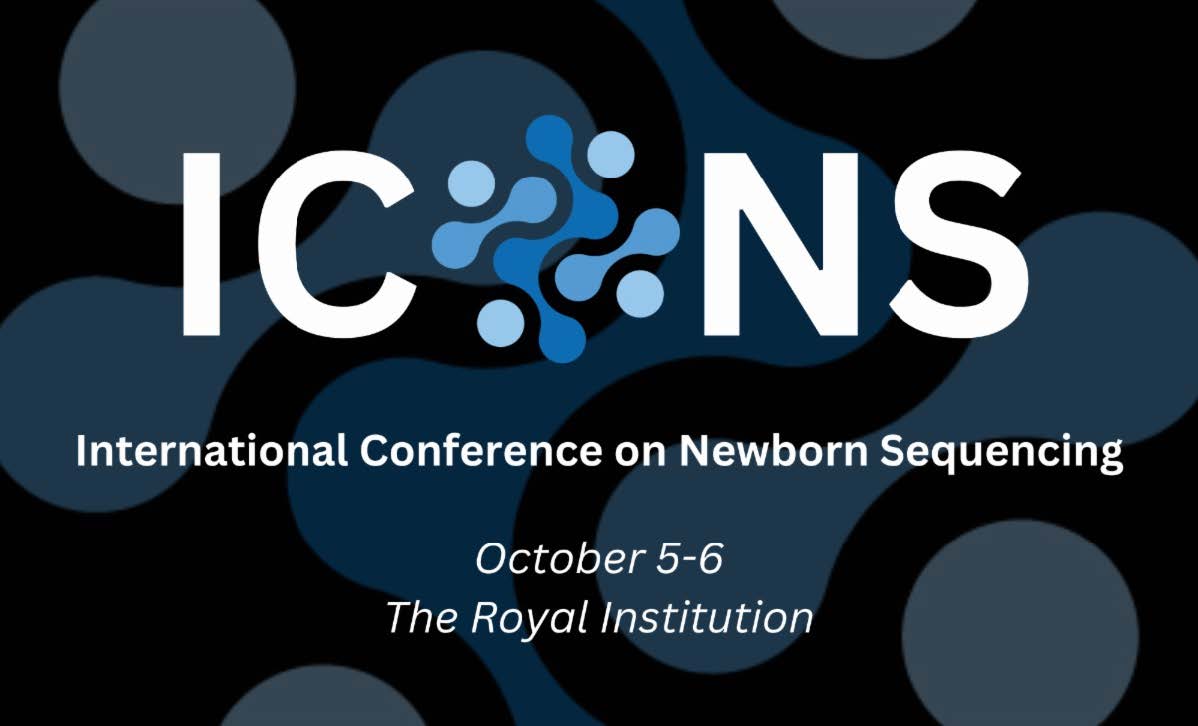
This newsletter highlights the International Conference on Newborn Sequencing (ICoNS) that is just around the corner on October 5-6, 2023 in London, UK. It’s not too late to register! Other G2P updates include media coverage of BabySeq1 publications, a new publication from the Sanford Imagenetics team about pharmacogenomics in primary care, and a blog post … Continued
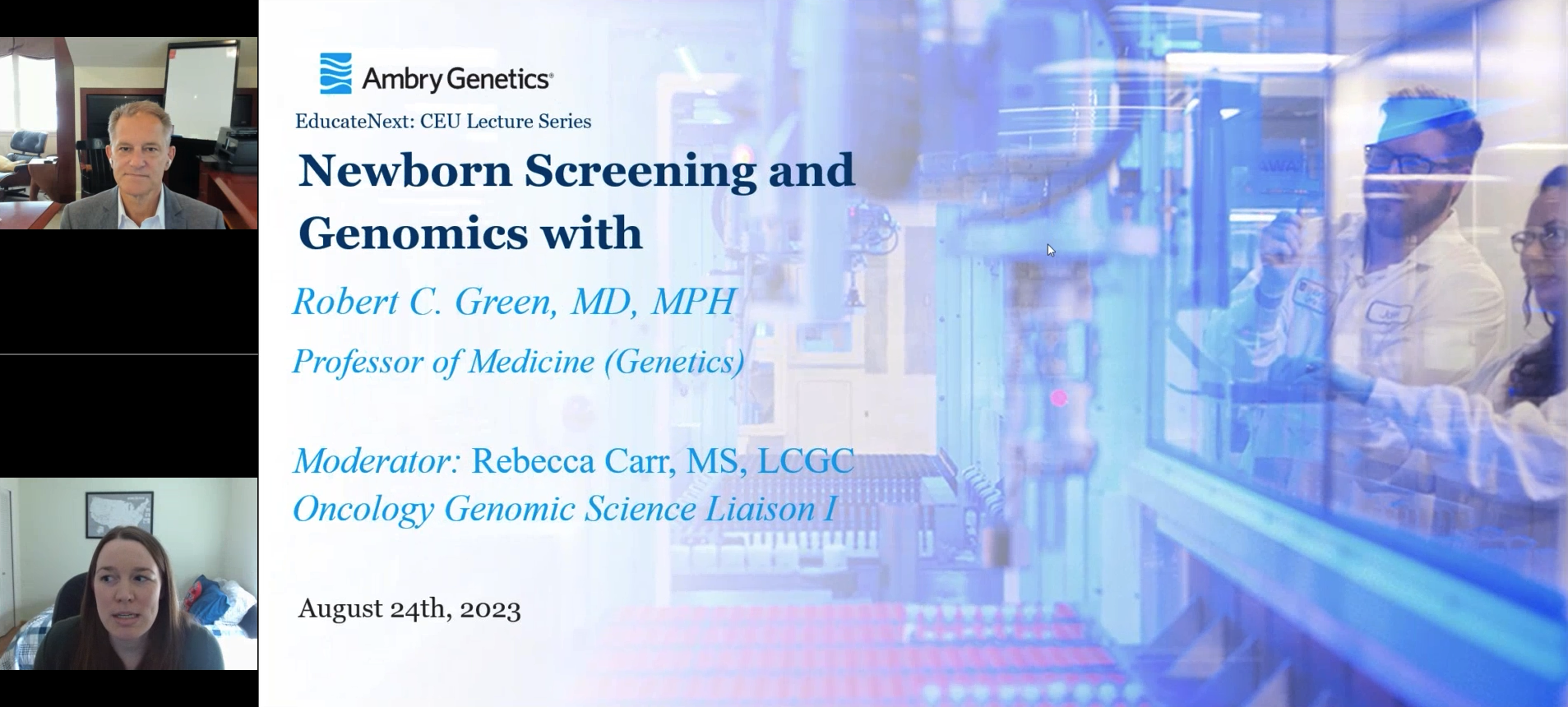
In this webinar Dr. Green explores the path towards a more personalized and preventive approach to medicine. He draws on insights gained from the MedSeq and BabySeq projects led by the Genomes2People Research Program (G2P).
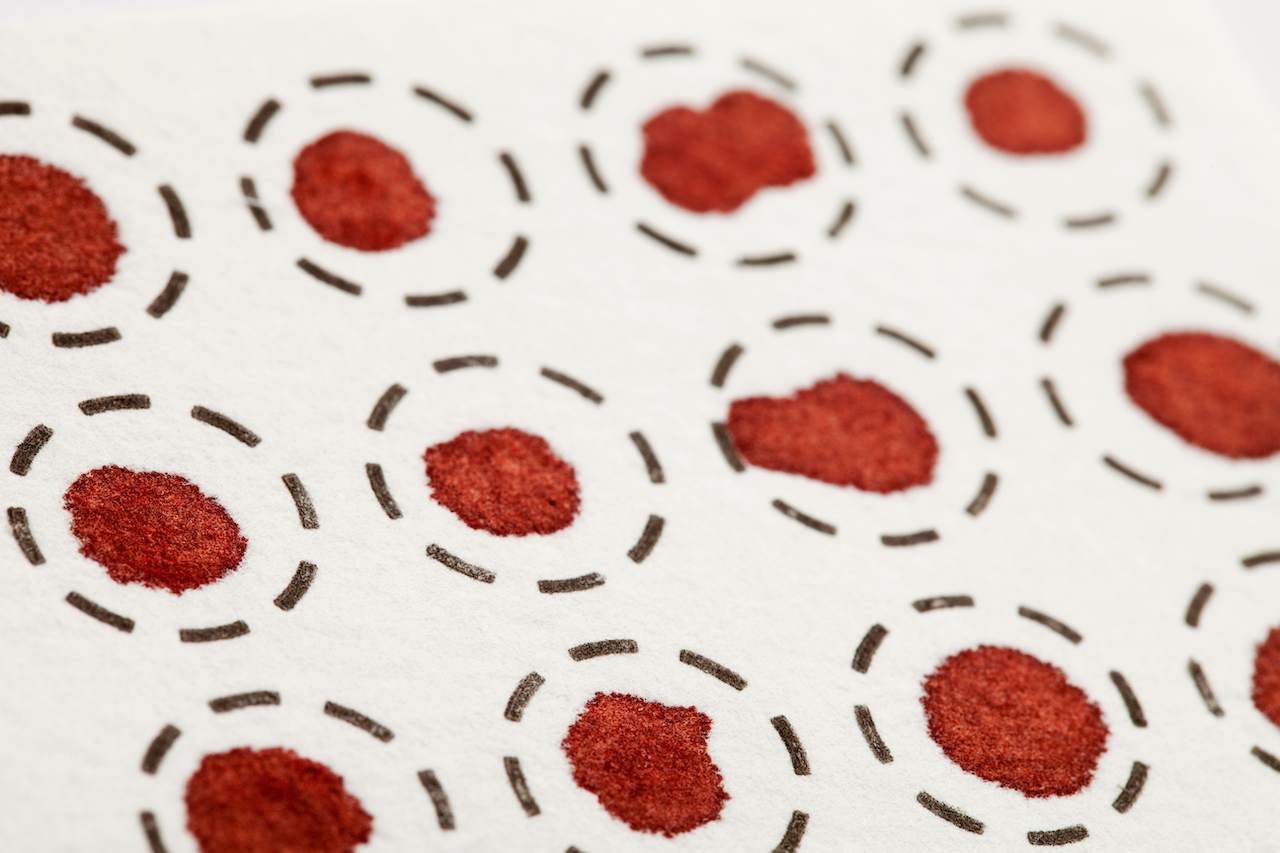
A recent editorial by The Lancet dives into the debate on universal newborn sequencing. While using genome sequencing as a screening tool for newborns has the potential to offer a great deal of relevant health information, there are certainly ethical issues and other challenges that also need to be addressed. The BabySeq Project is cited … Continued
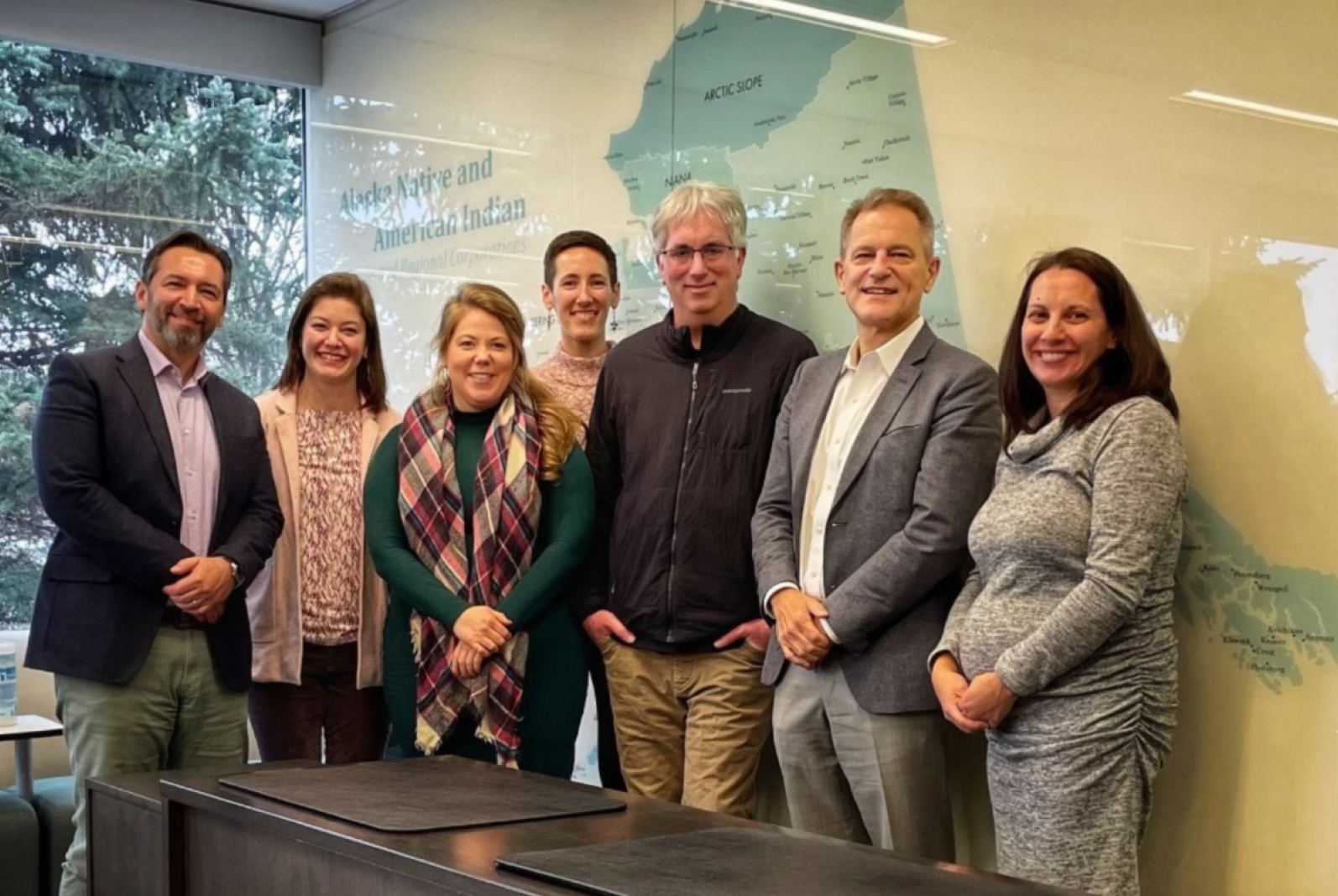
In this newsletter we’re excited to announce that the Precision Population Health initiative (PPH) is working with the South Central Foundation (SCF) on a new clinical genomic screening program to improve the health of the Alaska Native population. We are also thrilled to share that registration for the Second Annual International Conference on Newborn Sequencing … Continued
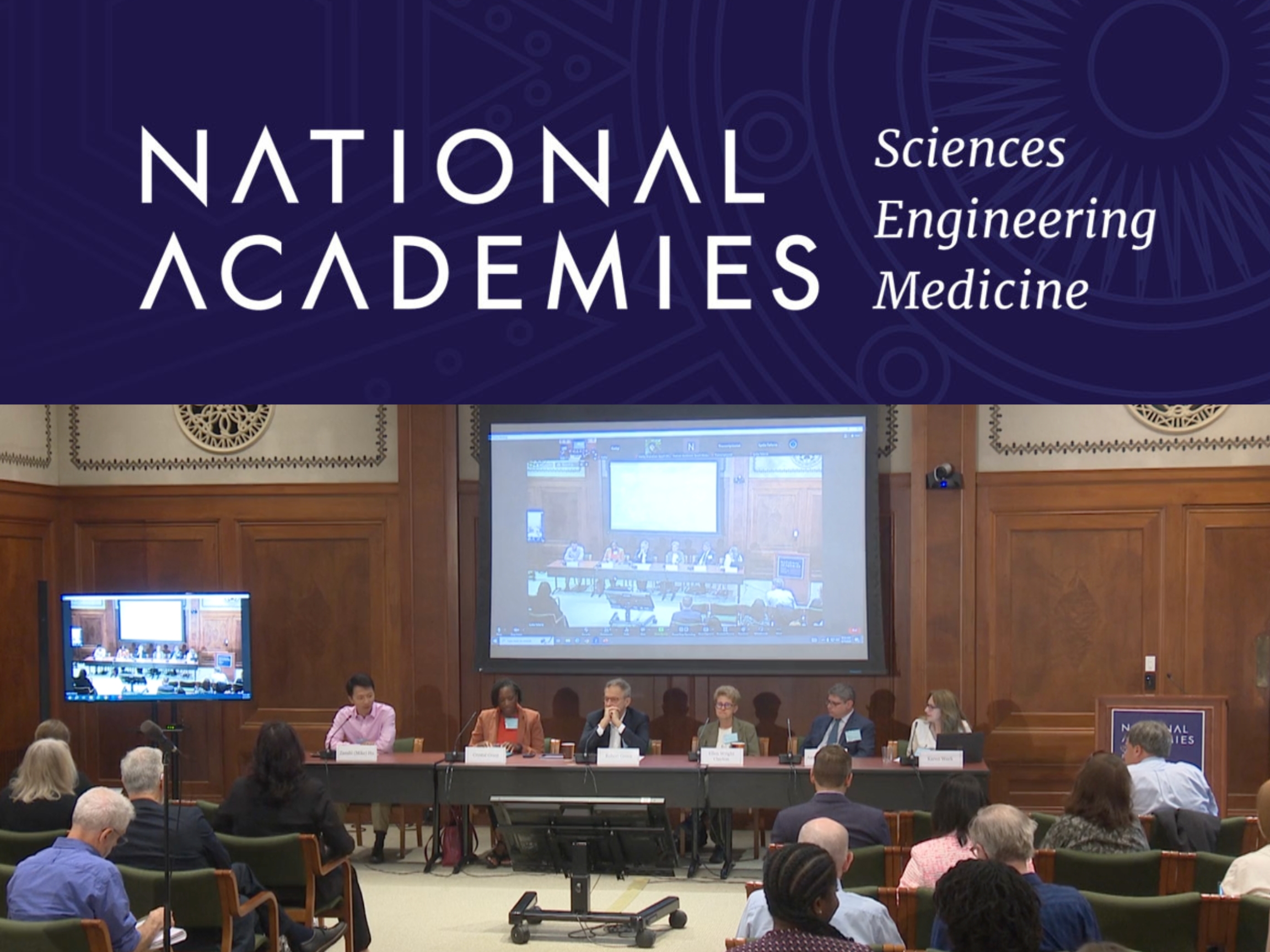
During the first session of the National Academies of Sciences, Engineering, and Medicine Workshop entitled Next-Generation Screening – The Promise and Perils of DNA Sequencing of Newborns at Birth, Robert Green participated alongside Ellen Wright Clayton, Crystal Grant, and Mike Hu in a panel discussion moderated by Karen Weck.
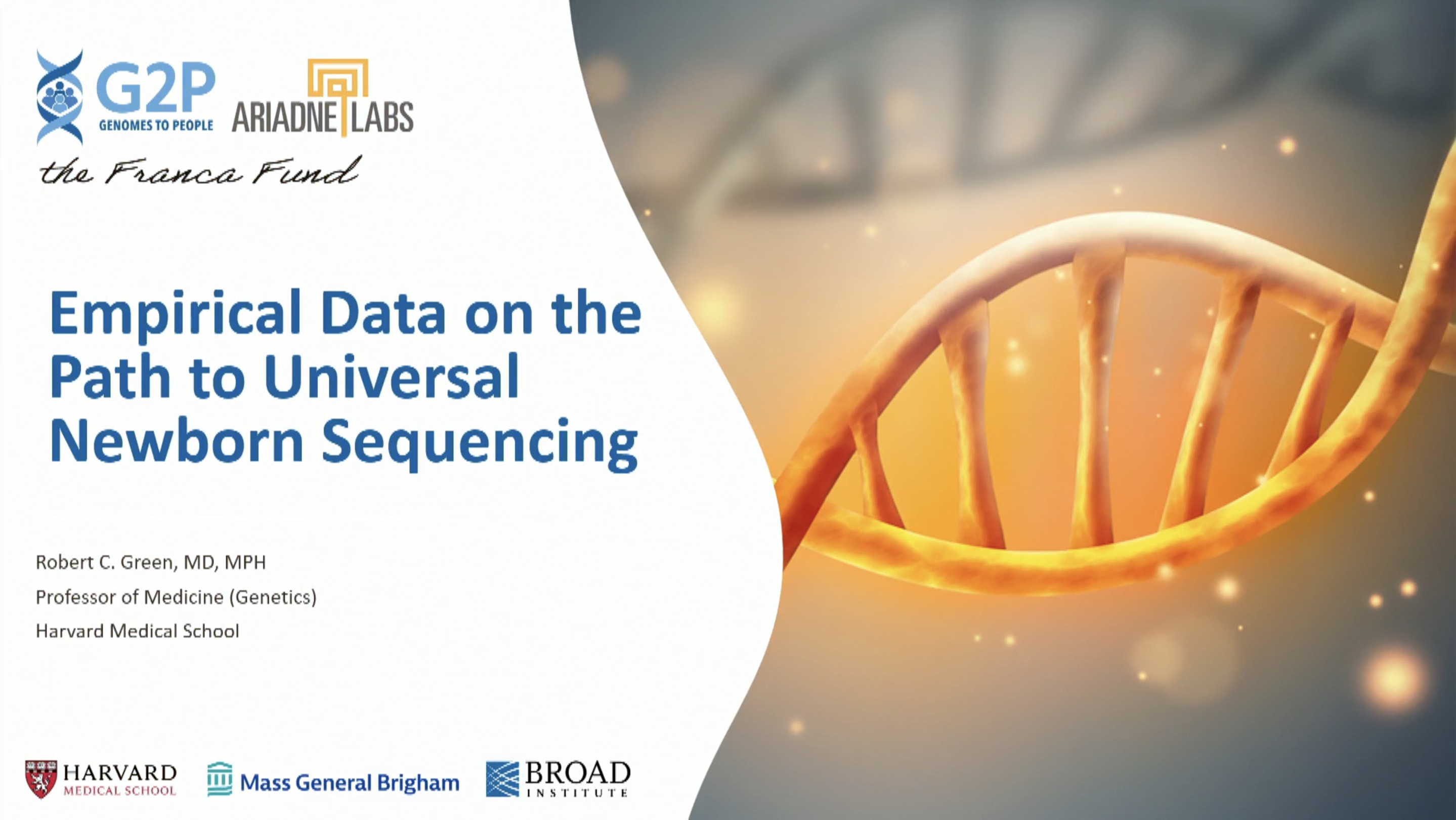
During the second session of the National Academies of Sciences, Engineering, and Medicine Workshop entitled Next-Generation Screening – The Promise and Perils of DNA Sequencing of Newborns at Birth, Robert Green shared updates from the BabySeq project in his presentation: Empirical Data on the Path to Universal Newborn Sequencing. Recorded sessions of the entire NASEM workshop … Continued

“The pathogenic or likely pathogenic variants turned up in 13 genes, the team noted, and included variants implicated in Lynch syndrome, breast and ovarian cancer, dilated cardiomyopathy, and other actionable adult-onset or childhood-onset conditions.”

“In the future, imagine identifying a risk for a devastating illness in a healthy newborn baby,” Green said. “Imagine then being able to find the biomarkers for the ones who are going to develop the disease and even preventing it. Imagine how thrilling that would be.”
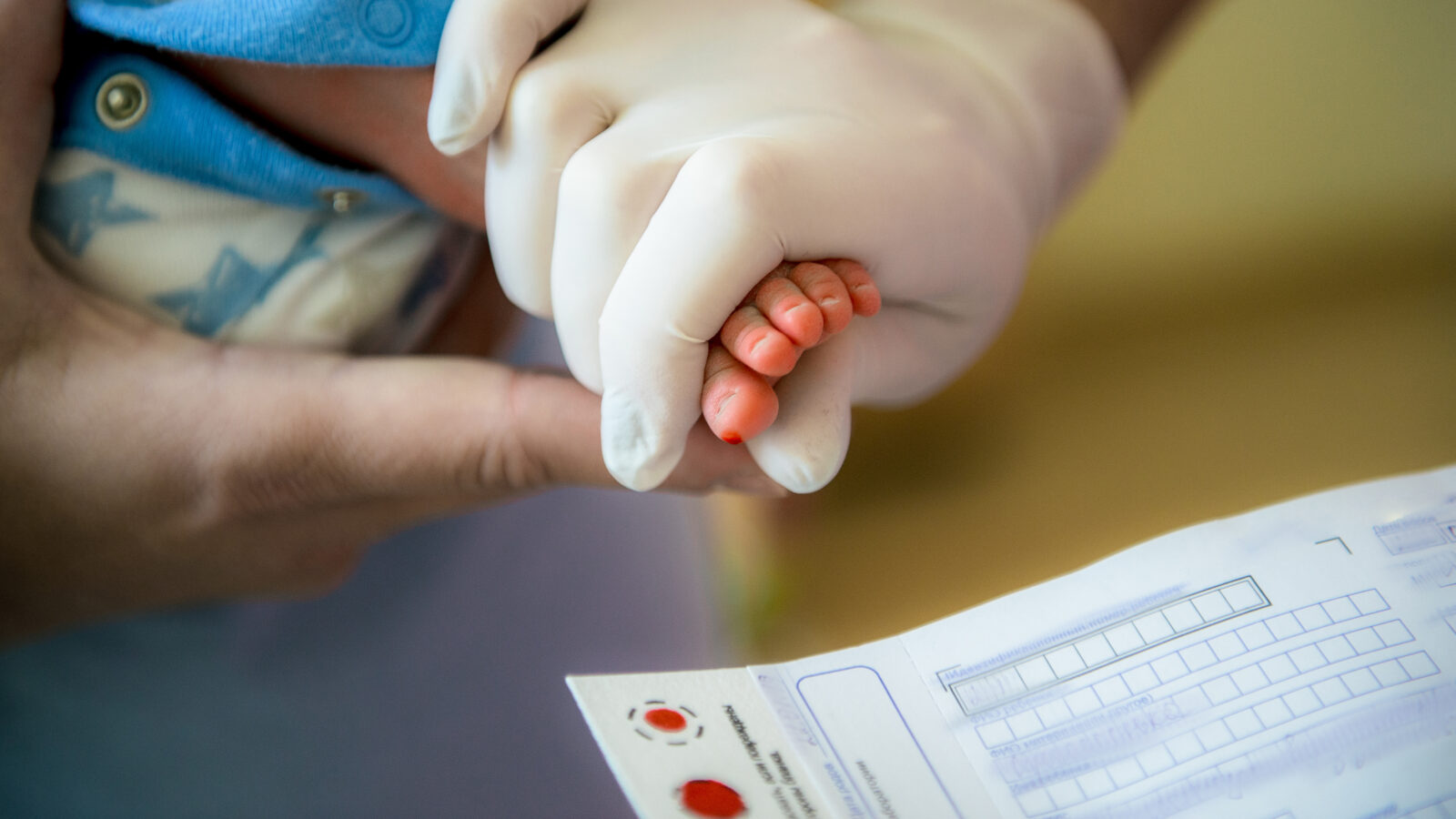
“There are ethicists who say a child should not be used as a genetic canary in a coal mine — that one member of a family should not be used without their consent as the access point for a whole family, but I’d like to challenge that. Look at these mothers. We arguably saved their … Continued
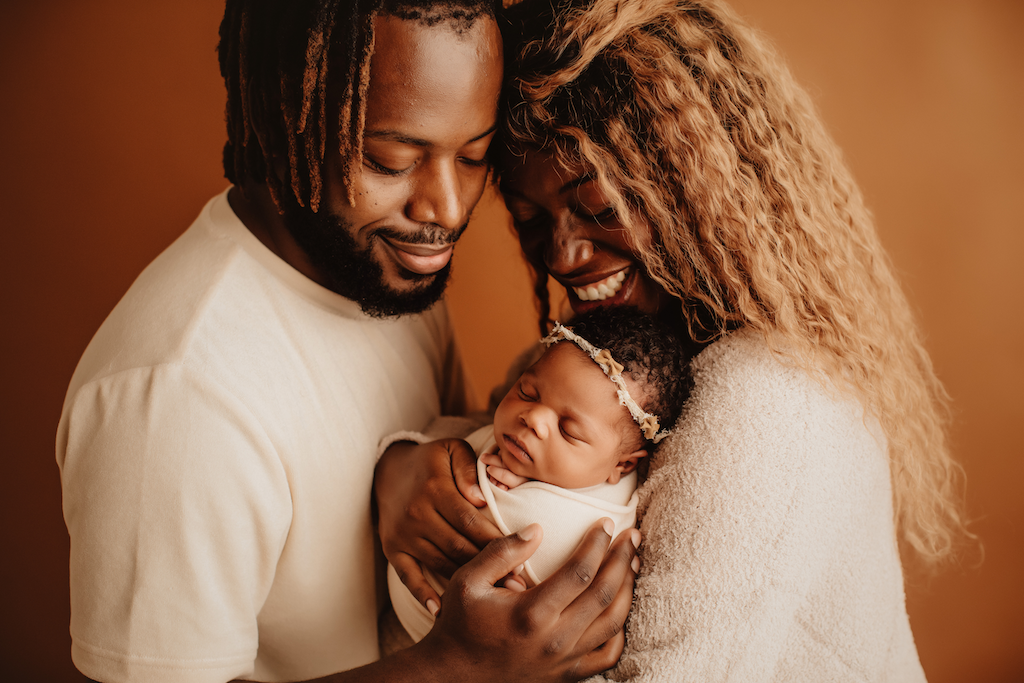
“By screening apparently healthy newborns, entire families were alerted for the first time that dangerous but treatable genetic variants were present,” said corresponding author Robert C. Green, MD, MPH, a physician-scientist at Brigham and Women’s Hospital and professor of genetics at Harvard Medical School, who leads the BabySeq Project. “We were stunned to see that … Continued
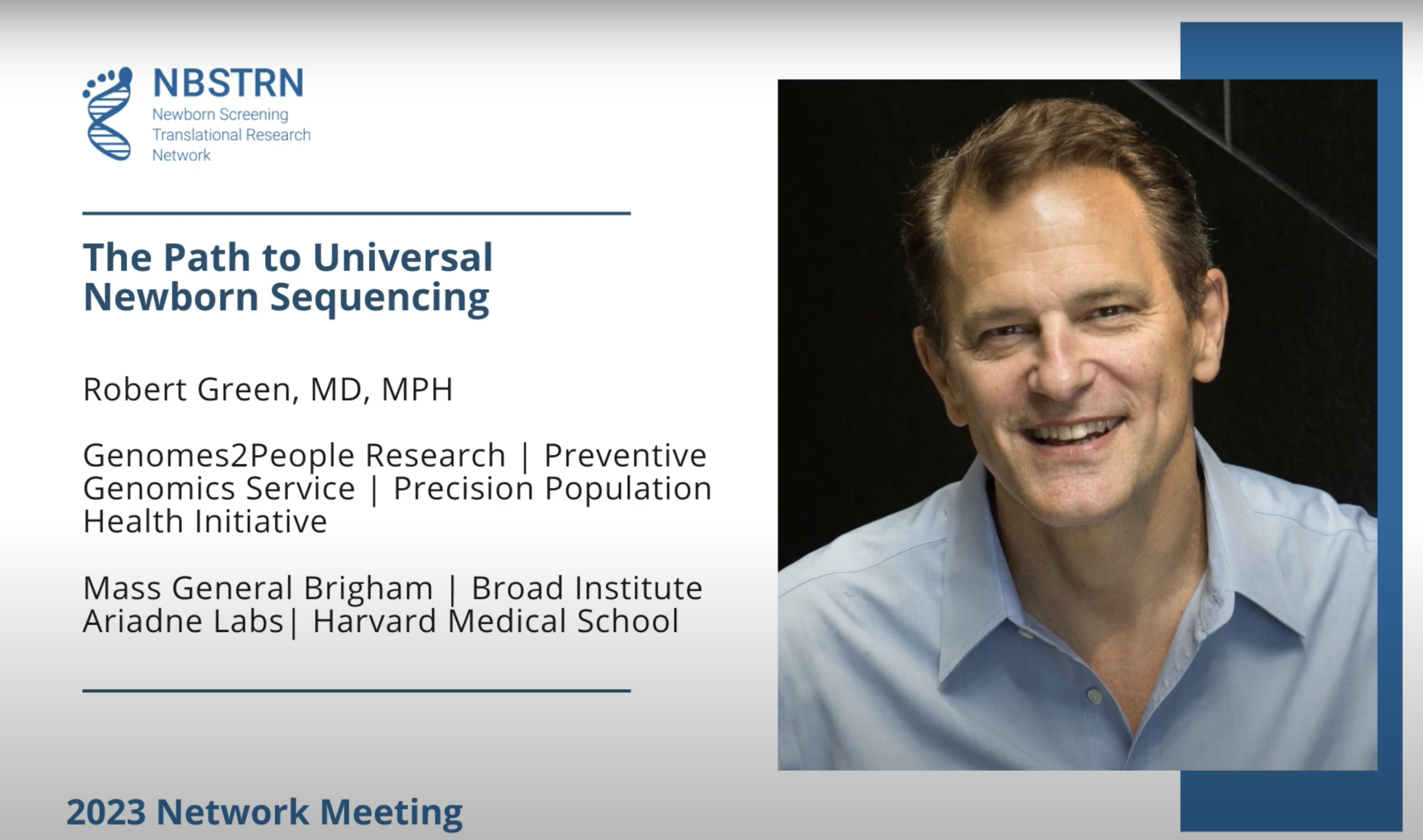
On May 18-19, 2023 from 12-4pm (EST), the Newborn Screening Translational Research Network (NBSTRN) hosted a two-day virtual meeting that showcased the important role of advocacy and research in NBS. Robert Green, MD, MPH led a talk on the path to universal newborn sequencing.
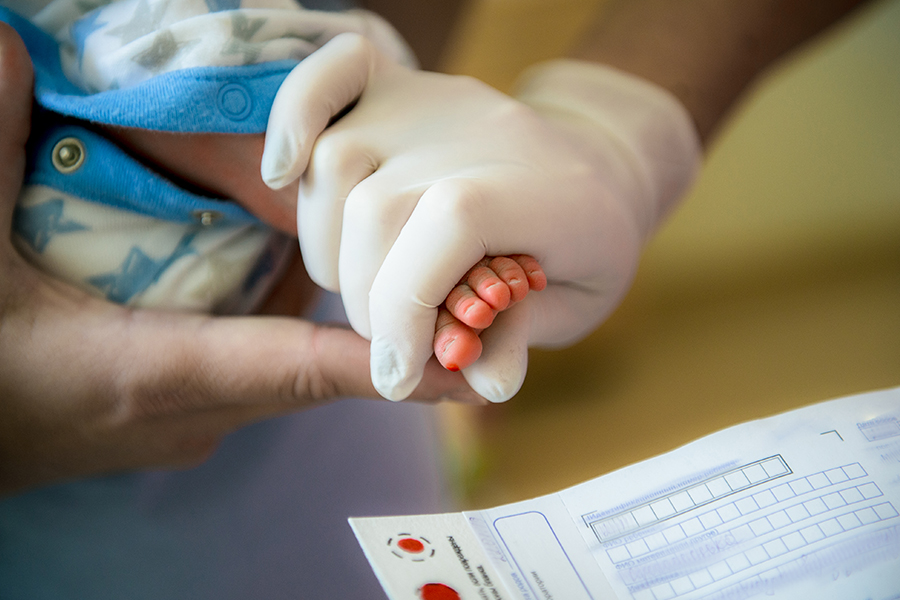
“In a newly released study, nearly nine of 10 experts on rare diseases agreed that sequencing healthy newborns’ DNA to reveal treatable genetic disorders should be available for all infants. At least half of experts also endorsed testing for more than 400 genes as part of such newborn genomic screens. These NCATS-supported study results might … Continued

“While newborns are only screened for about 60 treatable conditions, there are hundreds of genetic disorders that have targeted treatments. Now, a national survey of experts in rare diseases found the vast majority support DNA sequencing in healthy newborns…’It has been a longstanding dream to someday offer DNA sequencing to all newborns in order to … Continued